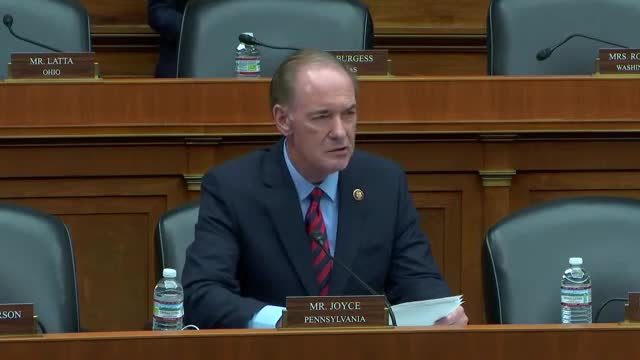FDA Faces Pressure to Regulate Plant Based Dairy Labels
September 12, 2024 | Energy and Commerce: House Committee, Standing Committees - House & Senate, Congressional Hearings Compilation
This article was created by AI summarizing key points discussed. AI makes mistakes, so for full details and context, please refer to the video of the full meeting. Please report any errors so we can fix them. Report an error »

In a recent government meeting, discussions centered on the labeling and nutritional standards of plant-based dairy substitutes and the fortification of corn masa products with folic acid. Deputy Commissioner Jones of the FDA addressed concerns regarding the marketing of plant-based milk alternatives, clarifying that while consumers are not confused about these products being substitutes, they often lack awareness of their nutritional differences compared to traditional dairy milk.
Jones noted that the FDA is drafting guidance to encourage clearer labeling that indicates the nutritional equivalence—or lack thereof—of these alternatives. Public health organizations have urged the FDA to reserve the term \"milk\" for dairy products derived from lactating mammals, highlighting the potential for consumer confusion. The FDA is considering requiring disclaimers for plant-based dairy imitations to better inform consumers about their nutritional content.
Additionally, the meeting highlighted the public health implications of folic acid intake, particularly for Latino communities. Congresswoman Barragan raised concerns about the lack of folic acid in corn masa products, which are staples in many Latino diets and linked to serious birth defects. Jones confirmed that the FDA had authorized the use of folic acid in corn masa but acknowledged that the industry has been slow to adopt this practice. Efforts are underway to engage corn masa manufacturers and promote the inclusion of folic acid in their products.
Barragan also announced her initiative to push for mandatory bilingual labels on corn masa flour products, warning consumers about the absence of folic acid. The discussions underscore the FDA's commitment to addressing nutritional labeling and public health issues, particularly for vulnerable populations.
Jones noted that the FDA is drafting guidance to encourage clearer labeling that indicates the nutritional equivalence—or lack thereof—of these alternatives. Public health organizations have urged the FDA to reserve the term \"milk\" for dairy products derived from lactating mammals, highlighting the potential for consumer confusion. The FDA is considering requiring disclaimers for plant-based dairy imitations to better inform consumers about their nutritional content.
Additionally, the meeting highlighted the public health implications of folic acid intake, particularly for Latino communities. Congresswoman Barragan raised concerns about the lack of folic acid in corn masa products, which are staples in many Latino diets and linked to serious birth defects. Jones confirmed that the FDA had authorized the use of folic acid in corn masa but acknowledged that the industry has been slow to adopt this practice. Efforts are underway to engage corn masa manufacturers and promote the inclusion of folic acid in their products.
Barragan also announced her initiative to push for mandatory bilingual labels on corn masa flour products, warning consumers about the absence of folic acid. The discussions underscore the FDA's commitment to addressing nutritional labeling and public health issues, particularly for vulnerable populations.
View full meeting
This article is based on a recent meeting—watch the full video and explore the complete transcript for deeper insights into the discussion.
View full meeting